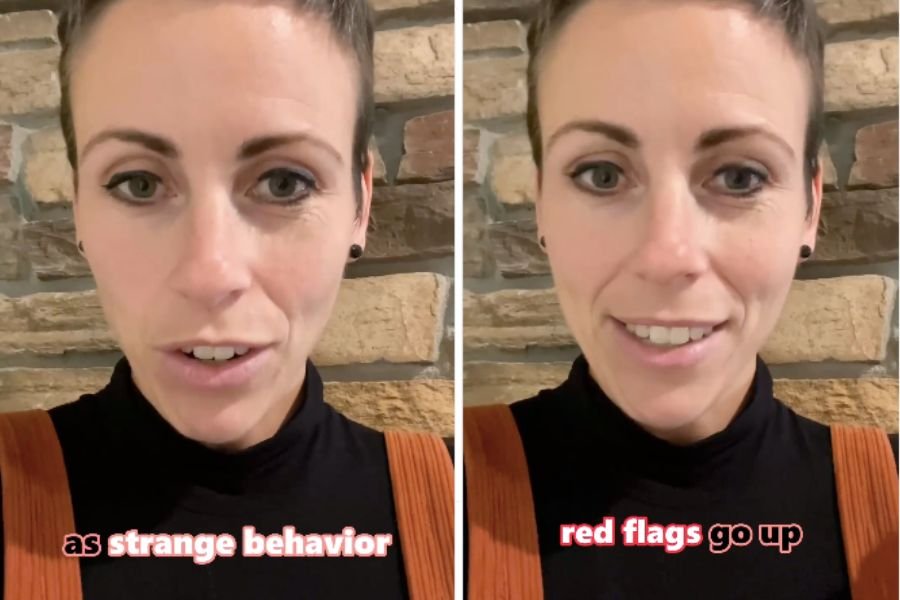In the 1960s, the Little Golden Books series included a book called “Never Talk to Strangers,” a cute little sing-songy rhyme with a host of silly animals and an ominous, repeating refrain: Never talk to strangers.
For generations, the “Don’t talk to strangers” message for kids has been as ubiquitous as “Wear your seatbelt” and “Look both ways when you cross the street.” But unlike those clear-cut safety rules, “stranger danger” messaging comes with some significant drawbacks and glaring omissions.
Mom and life coach Marcie Whalen shared why she and her partner don’t teach their kids the concept of “stranger danger” at all, and her alternate approach makes a lot of sense.
“Parents are trying to protect their kids, keep them safe. But most people are good people,” Whalen says. “And we want our girls to be outgoing and have conversations with people to be, in general, hospitable to those around them. And so instead of talking about strangers, we talk about strange behavior.”
Whalen points out the statistical truth that it’s far more likely that kids will be abused or hurt by someone they know rather than a stranger. “So I want my girls to understand what strange behavior is—asking them to keep a secret…asking them to go somewhere without their mom or dad—and my girls understand what to look for, whether it’s in somebody they know really well or somebody they don’t know at all.”
Watch her explain:
“Stranger danger” may be catchy as a rhyme, but when we teach kids that strangers in general can’t be trusted, we instill a sense of fear about everyone they don’t know, which isn’t entirely fair and can quickly become confusing. Real life involves interacting with strangers all the time, so kids miss developing an important life skill if all they hear is that strangers might be dangerous. We also talk about the kindness of strangers being a good thing, so at what point do kids learn to stop fearing unfamiliar people and start reaching out with kindness?
In truth, some strangers will be more trustworthy and safe than some people kids know, so automatically feeling paranoid about every stranger won’t guarantee their safety. Kids who are old enough to be in situations where they might interact with strangers without a parent or guardian beside them are old enough to learn what kinds of situations to avoid and what behavioral red flags to watch for. Most obviously, we should teach kids some specific luring tactics to watch for with strangers, such as an adult asking a child for directions or for help looking for a lost puppy, in addition to the classic tempting them with candy. However, it’s also important that they know “strange behavior” isn’t always super obvious, so they should listen to their gut if something seems even a little bit “off” or questionable.
For parents worried about kidnapping, it may help to know that even the National Center for Missing & Exploited Children avoids the “never talk to strangers” message as well.
“At the National Center, we don’t teach stranger danger, either,” executive director Callahan Walsh told TODAY Parents. “We know that child safety is much more nuanced than just a rhyming phrase. There are inherent flaws with that strategy.”
Walsh shared that kids will often describe strangers as “mean” or “ugly” or “monster-like,” which isn’t the reality with most people who actually pose a threat. Teaching children to avoid strangers also might prevent them from seeking help from a stranger, such as a security guard, a store employee or a mom with kids, if they find themselves in a scary or dangerous situation.
Of course, knowing your own kid also comes into this equation. Some children are more naturally anxious and cautious, while others may be oblivious to potential dangers, so tailoring the messaging to a child’s temperament is wise. Whalen’s premise is solid either way, though. Most people are good, most threats come from people kids know and “stranger danger” is a simplistic approach to keeping kids safe that doesn’t take the whole of reality into account.
This article originally appeared on 2.22.23





























